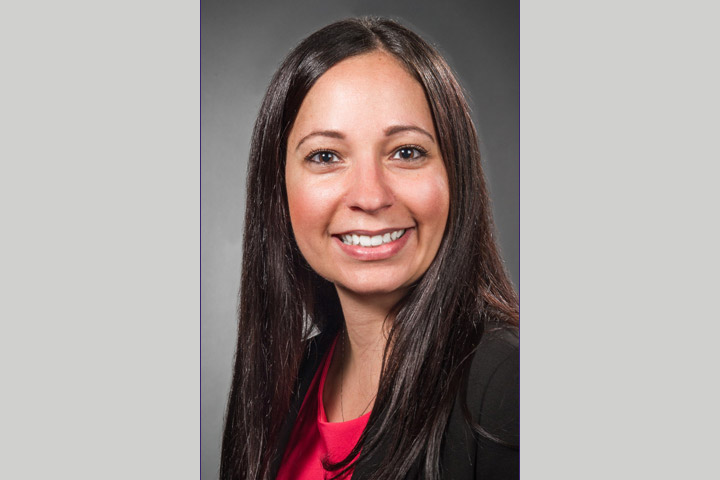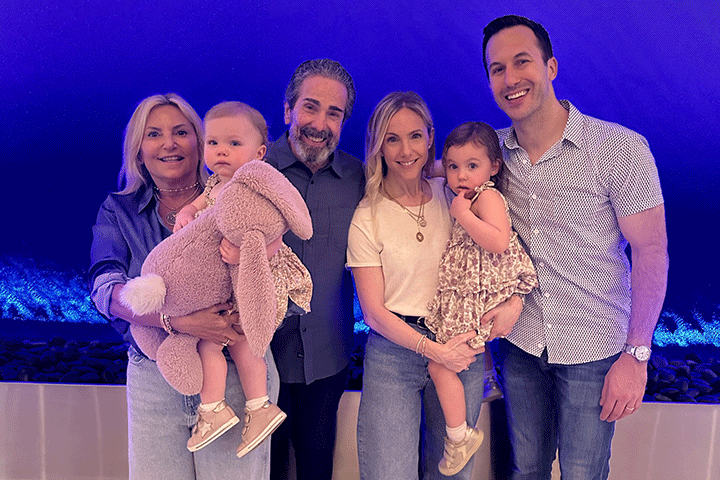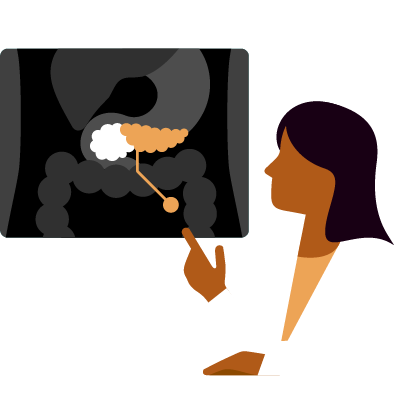The Key Role of an Oncology Dietitian in Pancreatic Cancer Treatment

As a pancreatic cancer patient, you’re probably well aware that your relationship with food can get complicated.
Your favorite foods suddenly taste different, or you lose the pleasure of eating overall. You might be afraid to eat, due to the unpleasant gastrointestinal effects that might follow, such as heartburn, bloating, gas, or constipation.
You might have just received a double whammy diagnosis of diabetes and cancer, with the prospect of a more regimented, sugar- and carb-controlled diet on top of the stress of impending cancer treatment.
It’s a lot to manage. But you need not do it alone.
And at a time when so much is overwhelming and out of your hands, what you put in your mouth is one thing you can control.
Intervening Early
Oncology dietitians like Antonella Apicella are available to cut through the confusion and help cancer patients come up with personalized plans tailored to their lifestyles, symptoms, and treatments. The earlier they are brought on board, the better.
Many pancreatic cancer patients may be experiencing nutritional deficiencies even before they are diagnosed. Their GI symptoms are often overlooked until they become persistent enough to seek treatment, at which point they may have already lost a lot of weight and may be showing subtle signs of vitamin and mineral deficiencies, such as hair loss and scaly skin. In addition, much of the weight loss comes from losing muscle mass, which can make daily activities like climbing the stairs or opening water bottles more challenging.
“Early nutrition intervention is key to mitigating or alleviating symptoms,” Apicella says. “And once treatment starts, some symptoms could subside while others might become even more pronounced.”
Ideally, medical staff want to optimize a patient’s nutritional health prior to starting treatments, in order to ensure the patients are able to tolerate and complete the entire course of treatment.
Getting Personal
For Apicella, the first step is getting to know her patients. Although many pancreatic cancer patients share similar symptoms, those symptoms may manifest differently. Things that work for some might not work for others. Tips like eating acidic and tart foods to get more flavor won’t be comfortable for patients with mouth sores, for instance. They would be helped by rinsing their mouths with baking soda and water before meals to reduce pain from the mouth sores.
Food aversions are very common among cancer patients and can intensify during treatment, so Apicella strives to keep foods that they enjoy in their diet, as well as cultural dishes that are important to them.
Apicella, who works as a dietitian in New York’s Northwell Health Cancer Institute Pancreatic Cancer Center, says that the cultural component is incredibly important. She even keeps a database of food from different cultures and takes every opportunity she can to learn from her patients about dishes she might not have known about.
“Many patients are surprised and appreciate such attention and consideration of their cultural background,” she adds. “I think it’s very important; it makes patients feel more comfortable and safe in our care.”
Apicella has a lot to take into consideration when making plans for patients. Some have multiple comorbidities, such as diabetes, which require dietary or drug interventions, and Apicella may have to work with other members of the medical team to prioritize between them and determine which will be more impactful on the cancer treatment and overall health of the patient.
In diabetic patients, for instance, their blood sugar levels are often erratic or uncontrolled in the beginning, and they may shift during treatment. Steroids, often given temporarily right before treatment or more consistently as a nausea prevention medication, can significantly influence blood sugar levels.
“Managing hyperglycemia is very important, as it can interfere with treatment tolerance,” Apicella explains.
There are also food–drug interactions that come with certain treatments.
Maintaining Control
While Apicella keeps on top of these complex and sometimes conflicting medical considerations, she ensures that the patients are equal partners in the process. “We want the patients to feel involved in their meal plan. We want them to feel like they have some control, we want to give them back some autonomy.”
Family members and caretakers can also be important members of the team, especially as they may be involved in meal preparation and support. Apicella invites them to be present at consultations to help their loved one process the information, and she welcomes their calls if they need additional information or advice.
She encourages pancreatic cancer patients to seek support from specially trained dietitians, many of whom are board certified in oncology nutrition.
“We have to wear many hats when we work with these patients. But it’s very rewarding. Sometimes what we think are small suggestions, such as not to eat and drink at the same time, can make a huge difference.”



